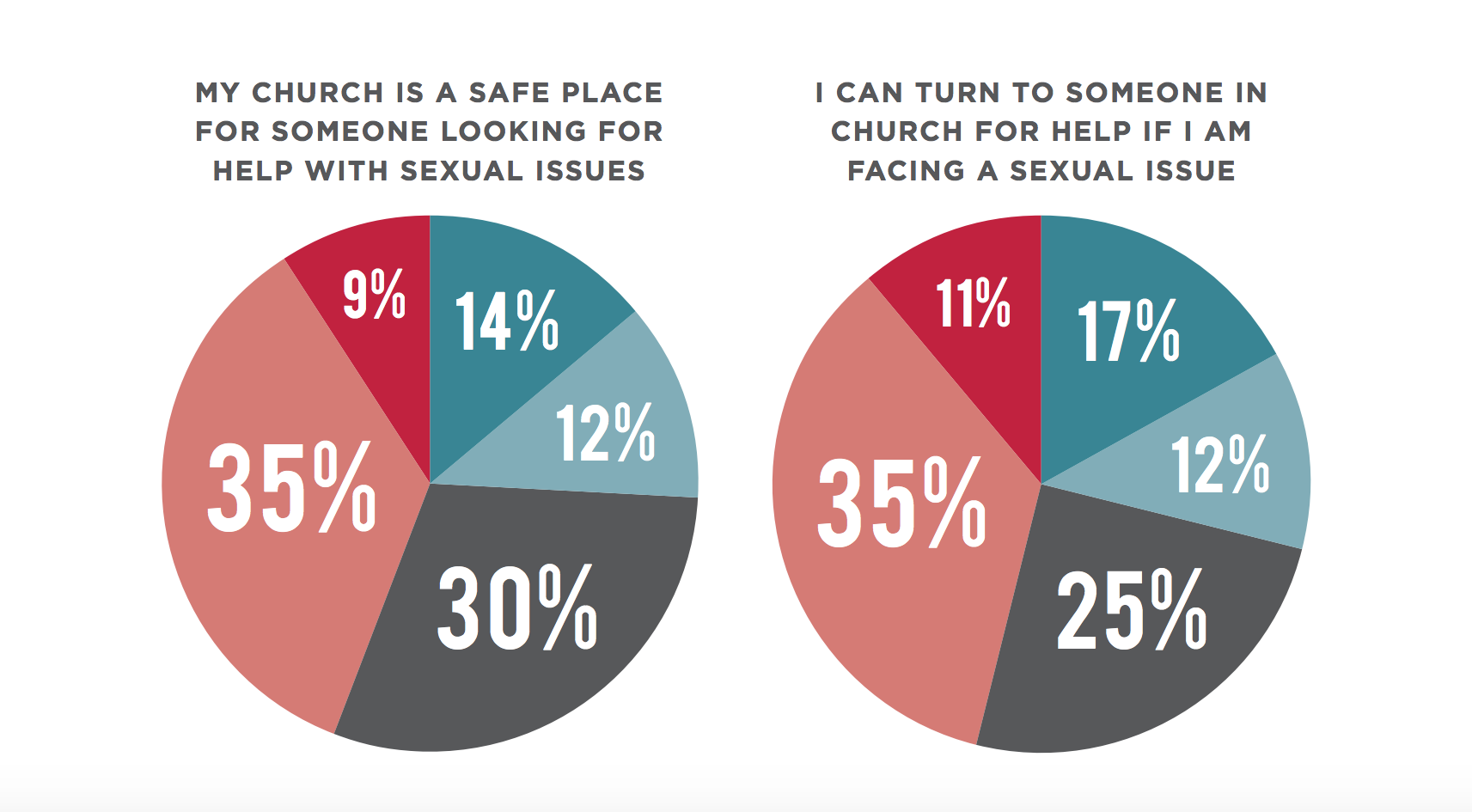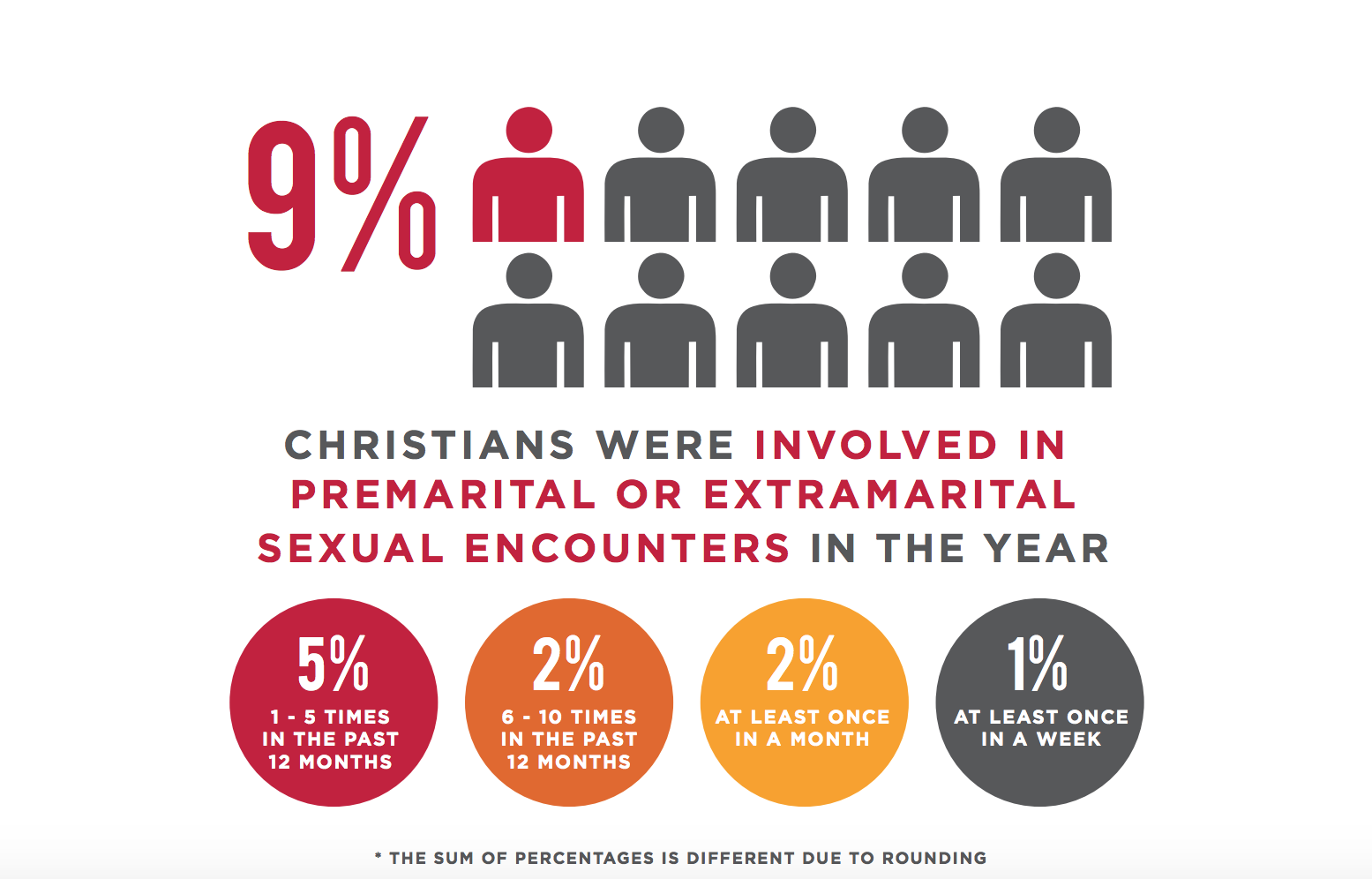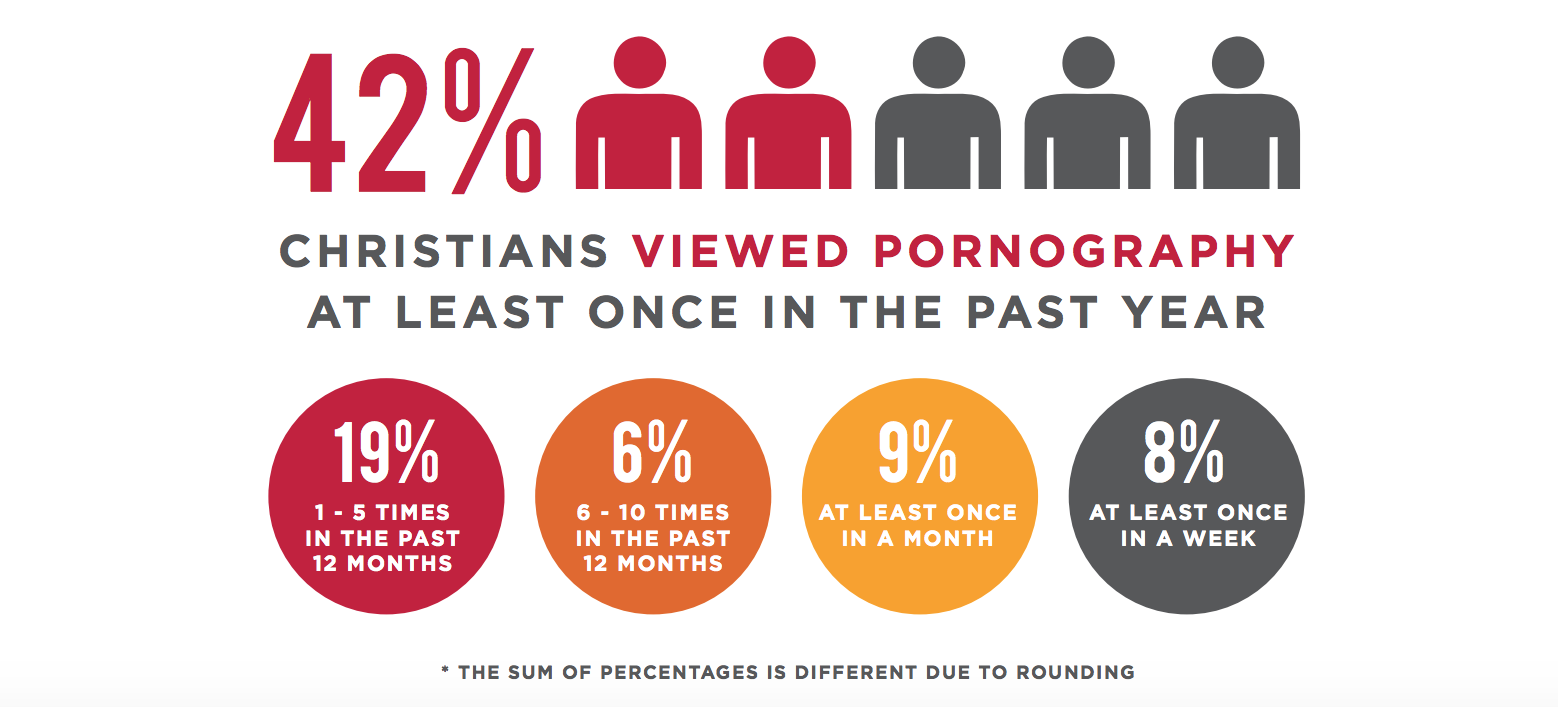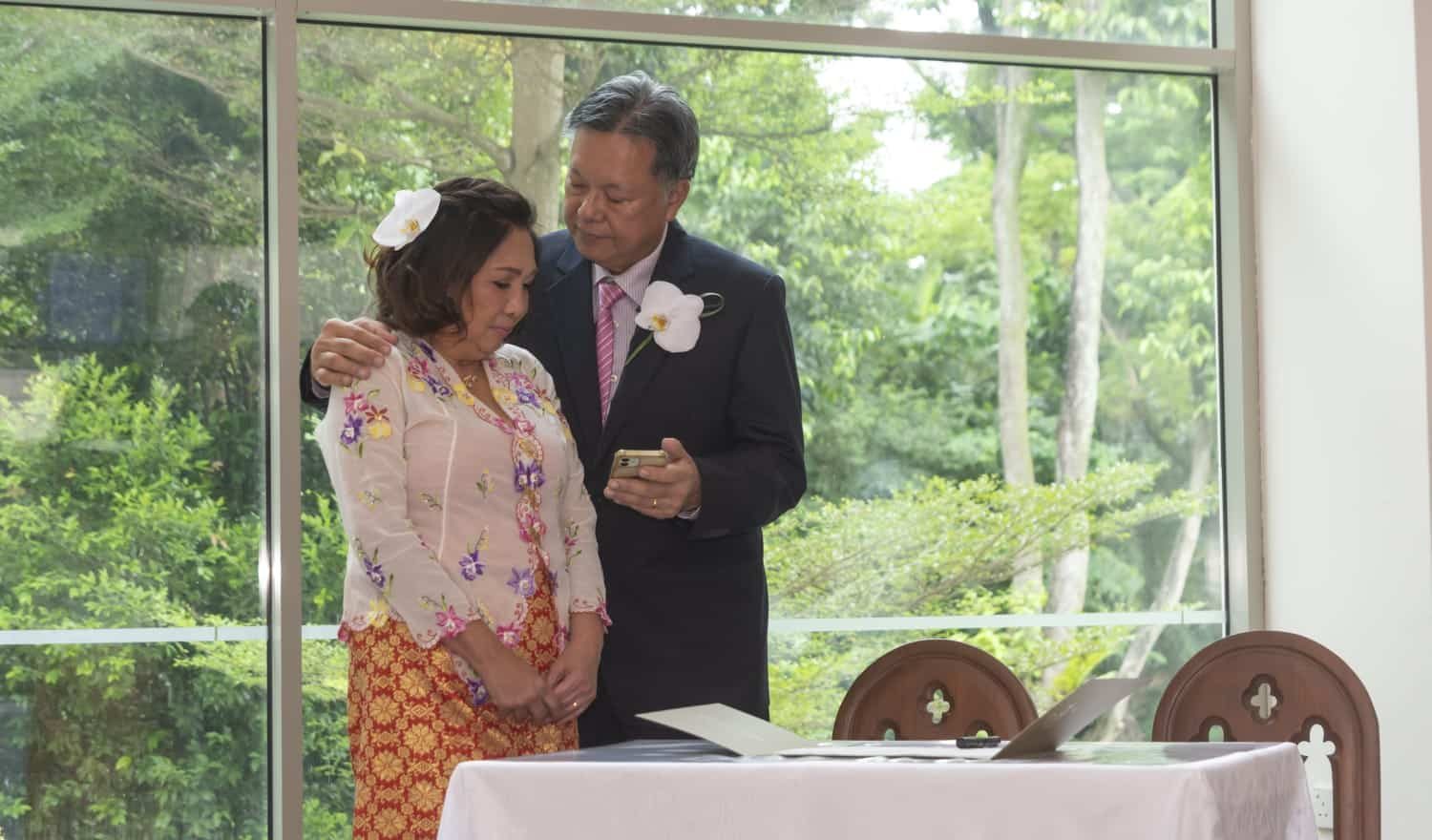Photo by rawpixel on Unsplash.
It is a topic referred to within the first pages of our Bible (Genesis 2:25), and yet just hearing the sound of the word induces squirms and shudders.
No, it is not sin, though some may associate the term with it subconsciously. It’s sex.
While issues surrounding the S-word has entered the spiritual fray in recent years due to the rise of the LGBTQ debate, statistics reveal that the Church is still not an authoritative voice on sex education.
According to a Whole Life Inventory survey conducted in 2016 among 7,209 participants, only 44% of the Christian participants said that the Church was a safe place for someone looking for help with sexual issues.

Source: Whole Life Inventory survey 2016.
Problems will crop up if Christians keep quiet about sex, said Dinah Phua, a pastor at RiverLife Church and former head of family networks at Focus on the Family.
God created sexual beings – He made neurological systems, hormonal systems and reproductive organs as the “hardware for sex”.
If the church does not address sexual brokenness, then the world and its secular values will be these people’s teachers, she said.
Many Christians end up leading a double life – watching pornography, masturbating, cheating on their spouse, engaging in pre-martial sex or same-sex relationships, among others – rather than seek help for their predicament.
Theologically-speaking, the Church must establish a discourse on sex.
God created sexual beings (Genesis 2:23-24, Genesis 1:28, Song of Solomon), wrote Dr Yip Teem-Wing, a Family Medicine doctor who used to run a sexual health clinic in Australia, in a paper titled How Christians Can Talk About Sexuality.
God made neurological systems, hormonal systems, and reproductive organs as the “hardware for sex”, and these biological components communicate with one another to produce sexual desire and pleasure.
Sex versus Sexuality
Before fighting the awkwardness, church folks must understand the difference between sex and sexuality, said Ben KC Lee, also pastoring at RiverLife Church and former head of sexual wholeness at Focus on the Family.
In his book Unmasked: Being Authentic About Sexuality, Lee wrote that while sex is the act of joining two bodies, sexuality is a “God-given longing for intimacy” while taking into account our male or female identity. Sexual desires are therefore triggered by the need for affection and acceptance.
Since sexual desire is driven by a longing for relationships, it should be channelled towards loving acts, rather than sexual acts.
However, society has misplaced the yearning into “instant gratification” and “unbridled indulgence”, Lee wrote, when intercourse should be reserved only for married couples because it is the act of sharing the “deepest part of ourselves with another” and “unites two people for life”.
“We are created with a deep desire to connect, to be loved, to love, to care, to be cared for – to be part of deep relationships,” said Lee in an interview with Salt&Light.
Human beings are intrinsically relational as we reflect a plural God’s image – Father, Son, Spirit perfectly in love with one another.
Since sexual desire is driven by what is essentially a longing for relationships, it should be channelled towards loving acts that build human community, rather than sexual acts, he said.
Unfounded shame
So why do people hush up when it comes to the matter of sex?
According to Yip, there are a multitude of factors.
Among them: Some think they need to be armed with facts before fielding questions, while others have experienced sexual brokenness and are ashamed to open up.
However, these individuals should know that they are others like them.


Source: Whole Life Research Brief 2016.
In Singapore, the Whole Life Inventory revealed that 42% of churchgoers viewed pornography at least once a year, and 9% of Christians were involved in premarital and extramarital sexual encounters in the year.
Unfortunately, the Original Sin caused men to shun conversations about sex since ancient times.
Lee pointed out that when Adam and Eve committed the first sin, Satan attacked their sexuality. They became embarrassed about their nakedness (Genesis 3:7).
Christians have a duty to discuss sexuality matters; Jesus’ disciples must teach the “whole counsel of God’s Word”, including sex.
The cover up continues till today.
Growing up, all Lee knew about sex was “don’t do it” until he gets married, he said. But no one told him the reason why.
Lee ended up learning about sex through pornography and his “equally misinformed friends”, he said.
He recounts his secondary school days in a mission school, when his biology teacher would refuse to lecture the class on the highly-anticipated topic of reproduction. She told them to “read it by yourself at home”.
Christians have a duty to discuss sexuality matters, Lee added.
If Jesus called on believers to make disciples (Matthew 28:19-20), then His followers must teach the “whole counsel of God’s Word”.
One cannot avoid this area just because they are uncomfortable with it, or else that is being unfaithful to Scripture.
The first step
The key to broaching the subject is friendship, Lee said, and that takes authenticity and effort.
“Church has a lot of friendly people, but not necessarily friends. Yet, people come to church looking for friends,” he said.
Being a genuine pal means when someone says they struggle with pornography when they are bored, we text them regularly: “What are you doing right now? Do you want to hang out?”, he explained.
When a friend with same-sex attraction is tempted to visit a gay sauna and they call us at 2am, we rush down to a Mcdonald’s and listen to them lament about their loneliness.
“A real friend is not just someone I can bare my heart to, but someone to keep me accountable.”
When someone shares about their problems, we accept them and extend grace to them without condoning their behaviour.
“What I’m looking for in a real friend is not just someone I can bare my heart to, but someone to keep me accountable and help me overcome my weakness,” Phua said, adding that this friendship factor applies to parents who want to disciple their children in the realm of sexuality as well (Deuteronomy 6:7-9).
And Christians must take the risk if no one seems to be willing to divulge their innermost thoughts.
In Unmasked, Lee wrote: “The world craves what’s real … If you live out authenticity, you might get hurt. Be authentic anyway. If you love, you might get hurt. Love anyway. Call others out to do the same. Be a fresh voice. Create new standards for relationships.”
In her paper, Dr Yip added that to have a heart-to-heart conversation about sex takes the ability to be trustworthy and non-judgmental. Only then are your opinions valued.
It helps to get familiar with the subject because “using incorrect terminology may also lead to reinforcing unhelpful stereotypes, make the speaker lose credibility, or even cause offence”, she said.
What can the Church do?
Leaders and those on the pulpit have a responsibility to set the culture for authentic conversations, said Phua, or else sexual brokenness will continue to underlie the church.
To have a heart-to-heart conversation about sex takes the ability to be trustworthy and non-judgmental.
“If the leaders are mum about this, then if I were sitting there, I’m wondering, ‘Is this a safe place, or would I be judged if I shared my struggles?'”
Lee said some pastors may be reluctant to broach the topic because they are tussling with issues themselves.
Some of them have skeletons in the closet. They assume they are unable to meet a certain standard of Christianity, and therefore have no authority to raise the subject.
Another defence: Pastors believe if they talk about sex, pornography, masturbation, or holidays between dating couples, it might anger the congregation as these sins are confronting.
The only way for church leaders to get over their fear is for them to begin speaking about sexuality: “Openness breeds openness.”
We are an independent, non-profit organisation that relies on the generosity of our readers, such as yourself, to continue serving the kingdom. Every dollar donated goes directly back into our editorial coverage.
Would you consider partnering with us in our kingdom work by supporting us financially, either as a one-off donation, or a recurring pledge?
Support Salt&Light


